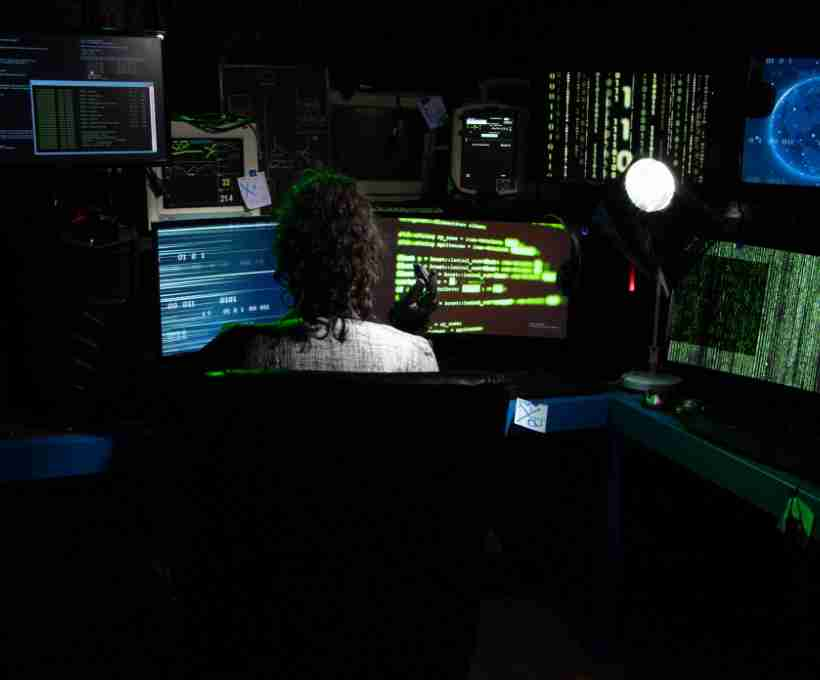If you’re fresh out of school and find yourself wondering, “Can I become an ethical hacker after 12th?”—the short answer is: YES, you absolutely can!
In fact, this is one of the best times to start your journey into the fascinating world of ethical hacking. You’re young, full of curiosity, and the tech world is evolving faster than ever. But of course, like any professional path, ethical hacking requires dedication, learning, and a smart roadmap.
In this blog, I’ll walk you through everything you need to know—from what ethical hacking is, to what steps you should take after 12th, how to build your skills, certifications to go for, and even potential career paths. Think of this as your ultimate beginner’s blueprint!
What Is Ethical Hacking?
Before we dive in, let’s clear one thing: Ethical hacking is NOT illegal hacking.
Ethical hackers are also called white-hat hackers. Their job is to find vulnerabilities in systems before the bad guys do—they help protect companies, governments, and people from cyberattacks. You become the hero who guards the digital world, not the villain.
Why Ethical Hacking Is in Demand
Here’s why ethical hacking is one of the hottest careers today:
- Cyberattacks are increasing every year.
- Companies are spending more on cybersecurity.
- There’s a huge shortage of skilled ethical hackers.
- Ethical hackers can earn a great income, even as freelancers.
So if you’re good at problem-solving, curious about how things work, and want to protect people—this might be your calling.
Can You Start Ethical Hacking After 12th?
Yes. And actually, starting after 12th gives you a head start.
You don’t need to wait for a computer science degree to learn ethical hacking. In fact, many successful ethical hackers today are self-taught or started learning early in their careers.
Here’s how you can begin.
Step-by-Step Roadmap to Become an Ethical Hacker After 12th
1. Choose the Right Stream (Optional but Helpful)
If you’re still in school and deciding your 12th stream, going with Science + Computer Science or Commerce with Computers can help—but it’s NOT mandatory.
What matters more is what you do after 12th.
2. Start Learning the Basics of Computers and Networking
Before you hack anything, you need to understand how things work.
Here are the foundational topics you should start with:
- Operating Systems (especially Linux)
- Networking (TCP/IP, DNS, firewalls, etc.)
- Web technologies (HTML, HTTP, JavaScript, etc.)
- Programming languages (start with Python)
YouTube, Coursera, Udemy, or platforms like Cybrary and TryHackMe are great places to learn.
3. Learn Cybersecurity Fundamentals
Once your basics are strong, move into core cybersecurity concepts:
- Types of cyber attacks (phishing, malware, ransomware)
- Information security principles
- Firewalls, proxies, VPNs
- Basics of penetration testing and vulnerability assessment
These topics build your hacker mindset—you learn how attackers think so you can stay one step ahead.
4. Build Hands-On Skills (Start Practicing!)
The biggest mistake beginners make? Only learning theory.
Cybersecurity is a practical field. You must start practicing:
- Set up a home lab using VirtualBox or VMware.
- Use platforms like TryHackMe, Hack The Box, OverTheWire, and PortSwigger Web Security Academy.
- Try simple Capture The Flag (CTF) challenges.
You’ll mess up, you’ll feel stuck—and that’s good. That’s how you grow.
5. Pursue Certifications (With or Without a Degree)
You don’t need a degree to become an ethical hacker. But certifications can help prove your skills, especially early in your career.
Start with beginner-friendly ones:
- CompTIA Security+
- Certified Ethical Hacker (CEH)
- EC-Council’s Essentials Series
- Google Cybersecurity Certificate
- TryHackMe Paths + Badges
Later, go for advanced ones like:
- OSCP (Offensive Security Certified Professional)
- eJPT (Junior Penetration Tester by INE)
- PNPT (Practical Network Penetration Tester)
6. Build a Cybersecurity Portfolio
Start showing the world what you can do. Your portfolio is your digital resume.
Here’s what to include:
- Write blogs (on Medium or Hashnode) about what you’re learning.
- Share CTF writeups or tools you’ve built on GitHub.
- Post regularly on LinkedIn to attract recruiters.
- Create a basic personal website or blog to showcase your journey.
7. Consider a Cybersecurity Degree or Diploma (Optional)
If you want a structured academic path, here are some options:
- B.Sc in Cybersecurity / Computer Science
- BCA with cybersecurity electives
- Diploma in Ethical Hacking or Cyber Forensics
- Online degrees from platforms like Coursera, edX, upGrad, etc.
But again—it’s not a must. Real skills matter more than degrees in this field.
How Long Does It Take to Become an Ethical Hacker?
It really depends on your consistency.
If you study and practice 2–3 hours a day, you can become job-ready in 12 to 18 months—even without a college degree. If you’re doing a diploma or BSc, you can still learn ethical hacking in parallel and start freelancing early.
Tools You Should Learn as a Beginner Hacker
Familiarize yourself with tools like:
- Wireshark – for network analysis
- Nmap – network scanning
- Burp Suite – web vulnerability testing
- Metasploit – exploitation framework
- Kali Linux / Parrot OS – hacker-friendly operating systems
Start slow—pick one tool, understand it well, then move to the next.
Job Roles You Can Target as a Beginner
Once you’ve built decent skills, here are some roles to aim for:
- Cybersecurity Analyst
- Junior Penetration Tester
- SOC Analyst (Security Operations Center)
- Bug Bounty Hunter (Freelance)
- Vulnerability Assessment Analyst
- Security Researcher
You can even start freelancing on platforms like Upwork or Fiverr with skills like malware removal, WordPress security, or vulnerability scanning.
How Much Can You Earn as an Ethical Hacker?
It depends on your skills, experience, and location.
- A beginner SOC analyst can earn ₹3-5 LPA in India.
- Freelancers earn anywhere from $10 to $100 per hour depending on the job.
- Bug bounty hunters can earn thousands of dollars from platforms like HackerOne, Bugcrowd, and Synack.
- With 3–5 years of experience, your income can easily reach ₹10 LPA or more.
Real Stories: People Who Started After 12th
Here are some real examples of people who became ethical hackers without a degree:
- Ankit Fadia – One of India’s most well-known ethical hackers started in his teens.
- Rahul Tyagi – Co-founder of Lucideus, started learning hacking in college.
- Your friendly neighborhood YouTubers – Many Indian ethical hacking creators started just after school and now teach thousands.
You can be one of them. The only difference? They started. So can you.
Common Myths to Ignore
Let’s bust some myths:
🚫 You need a computer science degree.
✅ Nope. Skills > Degrees.
🚫 You must be a genius in maths or coding.
✅ Not true. Basic logic and curiosity are more important.
🚫 Ethical hacking is illegal.
✅ It’s legal if you do it with permission and purpose.
🚫 It’s too hard to get into.
✅ Every expert was once a beginner.
Your 12-Month Learning Plan (Sample)
Here’s a rough plan to help you structure your journey:
Month 1–2:
- Learn basics of OS (Linux) and networking
- Explore YouTube cybersecurity playlists
Month 3–4:
- Learn Python + web technologies (HTML, JS, HTTP)
- Start basic labs on TryHackMe
Month 5–6:
- Learn about vulnerabilities (OWASP Top 10)
- Try Hack The Box (Beginner level)
Month 7–9:
- Get CompTIA Security+ or CEH (optional)
- Contribute to GitHub, write blogs
Month 10–12:
- Apply for internships, freelance gigs
- Start doing bug bounty (if confident)
Final Thoughts
So, can you become an ethical hacker after 12th?
Absolutely. And not just that—you can thrive.
You don’t need to wait for a degree. You don’t need to spend lakhs on college. What you do need is:
✅ A curious mindset
✅ Consistent learning
✅ Real-world practice
✅ Community engagement
✅ A passion to solve problems
This is your chance to be part of something exciting. The internet is full of threats—but you can be one of the protectors.
So go ahead. Hack the system (ethically), break barriers, and build a career that’s meaningful, impactful, and future-proof.





